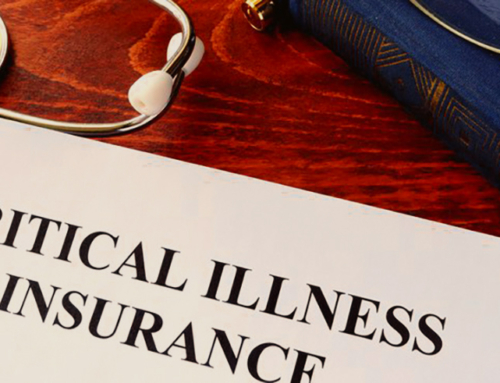SAVING FOR RETIREMENT
 By the time you’re in your 40s, you’re probably abundantly aware you should be saving for retirement. Hopefully, you’re already participating in your employer’s retirement plan, such as a 401(k) or a 403(b), and contributing enough to get the full match. If you’ve already hit the big 5-0, you can make up for any youthful financial indiscretions by contributing an additional $6,000 a year to your retirement plan, on top of the 2019 contribution limit of $19,000.
By the time you’re in your 40s, you’re probably abundantly aware you should be saving for retirement. Hopefully, you’re already participating in your employer’s retirement plan, such as a 401(k) or a 403(b), and contributing enough to get the full match. If you’ve already hit the big 5-0, you can make up for any youthful financial indiscretions by contributing an additional $6,000 a year to your retirement plan, on top of the 2019 contribution limit of $19,000.
But there’s more than one way to prepare a (nest) egg. Consider setting up a traditional IRA or a Roth IRA to help maximize your savings and enjoy the potential tax advantages that come with them. In 2019, the IRA contribution limit is $6,000, plus a $1,000 catch-up contribution for those age 50 and older. Also, you’ve probably seen a few pay raises over the years, did you boost your retirement contribution, too? If you’ve changed jobs, think about consolidating and rolling over any funds from an old 401(k) or 403(b) into a rollover account.
Saving for college
If you have kids, you’ve probably already encountered the age-old quandary of “do we fund college or our retirement plan first?” Ideally, you’d love to max out both. But, if you’re like most people, your resources are limited. A majority of experts will tell you to fund retirement first. It may sound selfish, but kids can get scholarships, grants, loans, and part-time jobs to help pay for college. But remember, there is no financial aid for retirement. Take care of yourself first.
If you’re able to put something aside for your kids’ college fund, a 529 plan is often a good place to start and may offer tax advantages. Even $20 a month can go a long way to fulfilling college dreams when they hit 18. Talk to a financial professional about how to open a 529 and how much you should be putting away to assist with college. The sooner you get started, the better.

Career change or starting your own gig
Switching careers or starting your own business can be exciting. But before you make that leap, make sure you have a plan and a savings cushion. Odds are you won’t be bringing in the same paycheck when you’re first starting out. Also, check your vesting status at your current gig. If you’re only a few months away from being fully vested, you may want to consider waiting so you get everything that’s coming to you. And don’t forget about health insurance, especially if you’re going out on your own. Healthcare insurance is even more expensive when you’re footing the bill yourself.
Estate planning
Let’s face it: You’re not getting any younger. You’ve probably got a few aches and pains that remind you of that fact every morning. It’s time to at least start thinking about estate planning. It’s not just for the wealthy, and you probably have more than you think — a home, cars, savings, and kids that need to be provided for. A will can help take care of your loved ones and ensure your final wishes are known. Plus, it makes it easier on surviving relatives since they won’t have to guess about your intentions or fight over your assets.
The life insurance discussion
While you’re thinking about what your world looks like without you, you should probably review your life insurance to make sure you have enough to protect your family’s way of life should the expected happen before anyone’s expecting it. (You do have some life insurance, right?) Have your needs changed since you purchased your policy? Is it time to get more before you get older and it gets more expensive? Have your beneficiaries changed? Life insurance isn’t always a one-and-done kind of thing.
Protecting your nest egg
Many people think their most valuable asset is their home or retirement account. It’s actually your ability to work and earn a living. Disability insurance can help replace part of your income if you can’t work for an extended time period due to injury or illness. There’s also long term care (LTC) insurance to start thinking about. Someone turning 65 today has almost a 70% chance they will need some kind of long term care during their life.1 If you wait until you’re in your 60s or 70s to buy LTC insurance, you’ll likely wish you’d done it sooner.




